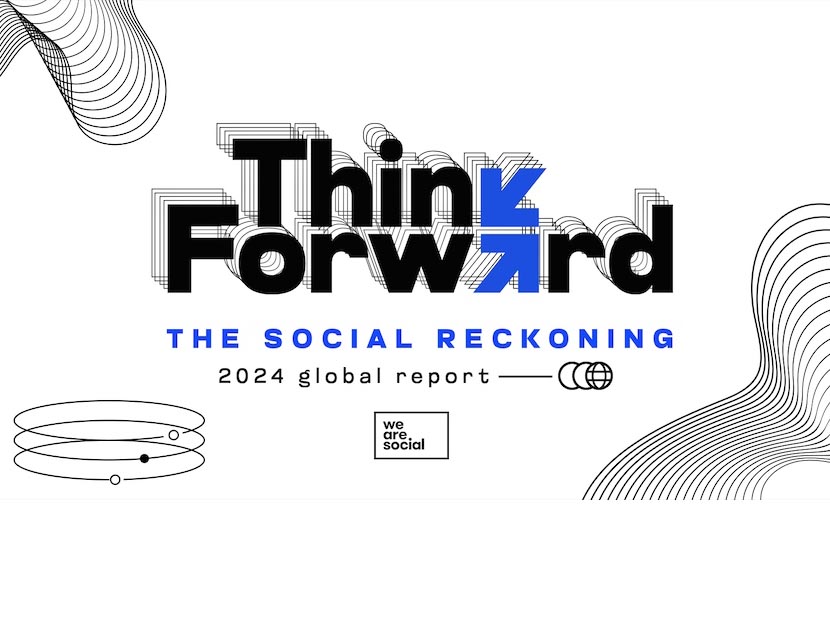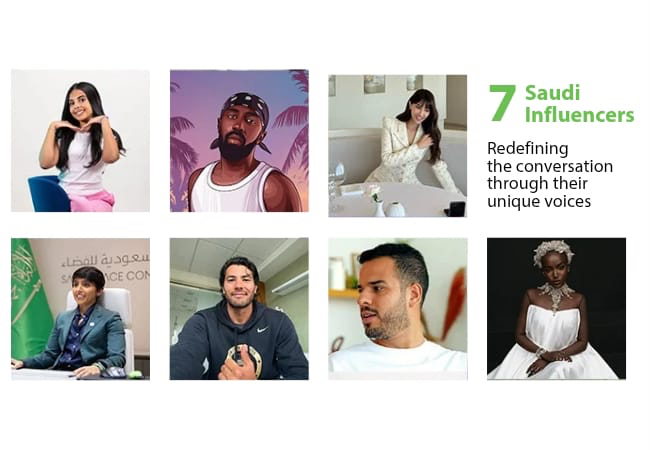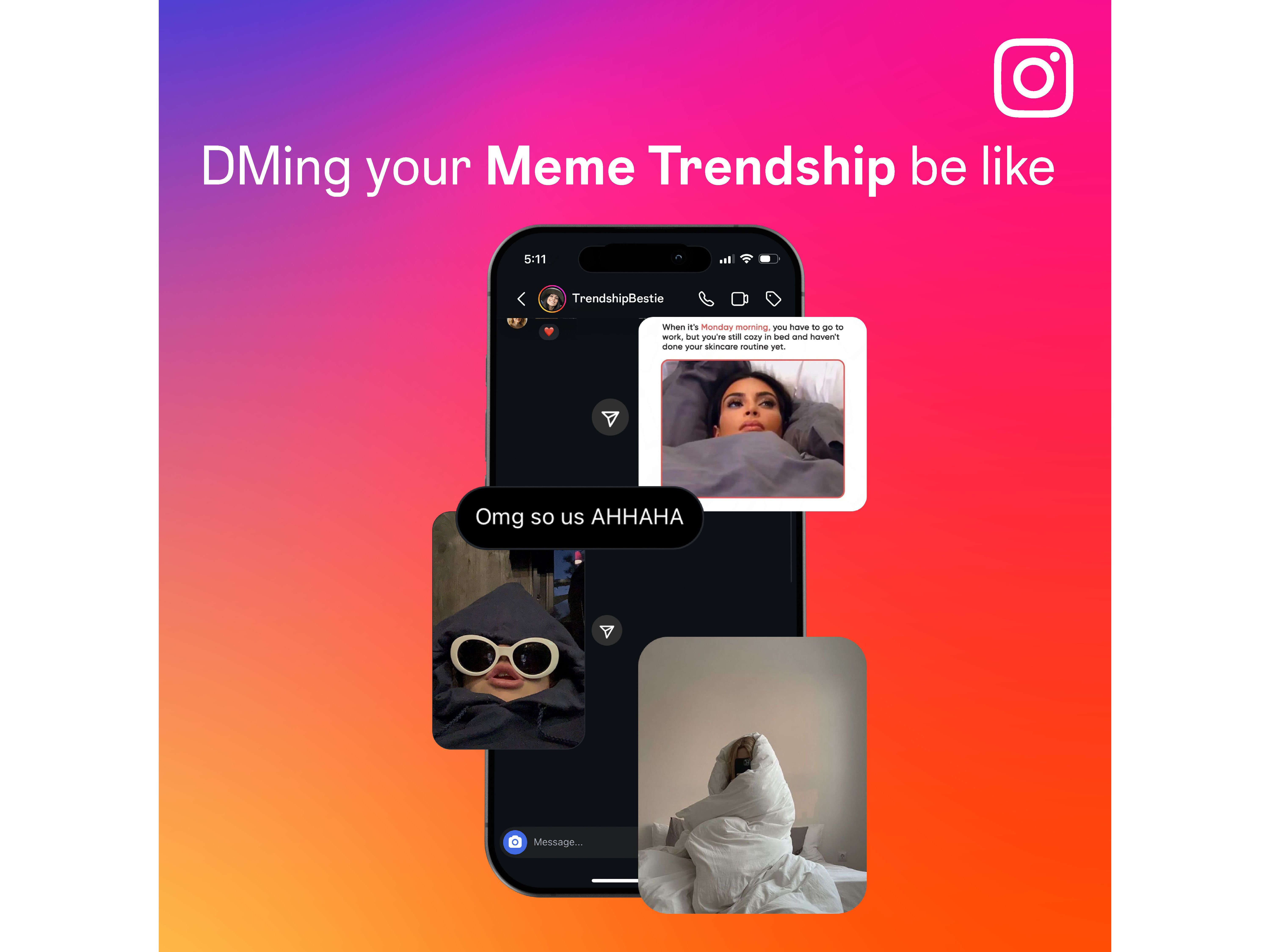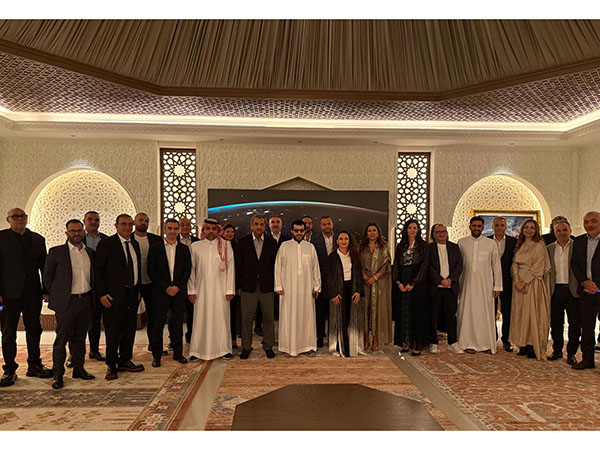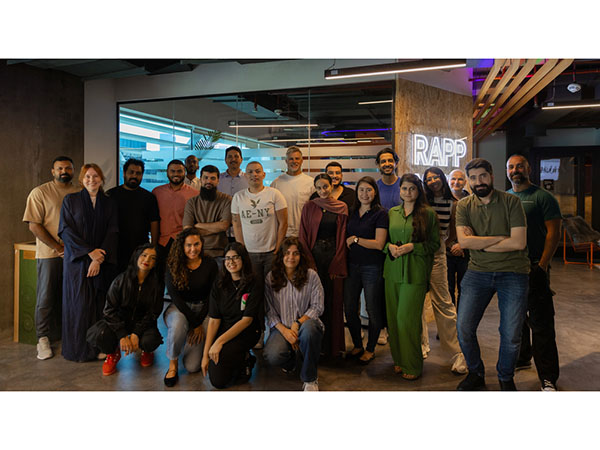News - News In Brief
We Are Social's new trends report describes a ‘social reckoning’ for brands in value-driven online spaces
November 2, 2023

Global socially-led creative agency We Are Social today launched the latest edition of its annual trends report, Think Forward 2024.
This year’s report, titled ‘The Social Reckoning’, examines how, in a backdrop of increased commercialisation and commodification, people on social media are rethinking and reframing their worth. They are examining the value derived from their attention and participation, their communities, and their creativity.
Think Forward 2024 explains how this new sense of value has played out across social, from the de-influencing trend helping creators flex what they know, rather than what they have, to the debate around users being able to buy their way into verification on X (formerly Twitter). It argues that cultural phenomena like 2023’s ‘Barbiemania’ demonstrate that people will willingly buy into manufactured hype, as long as it makes space for community, creativity, and play.
We Are Social has highlighted five trends within ‘The Social Reckoning’ theme, exploring how each is expected to shape social media in the next 12 months and demonstrating how brands can use these within their marketing strategies.
The five trends covered in Think Forward 2024 are:
Attention Layering
Having reached peak stimulus with ‘sludge content’, the attention economy is shifting gears. The most forward-thinking users, creators, and culture-leading brands are toying with other modes of bringing people in – ones that turn away from hyper-stimulation.
Example: The viral Wes Anderson aesthetic, which uses the director’s signature style to make everyday scenes – lunch, train rides, uneventful wanders – into an artful visual experience.
Post-Representation
People – whether minorities, disempowered groups, or just users writ large – still value representation. But in today’s culture, there’s less faith in the power of representation alone. As notions of identity compound and deepen, communities want to see messy complexity over neat narratives.
Example: On Reddit, people are using spaces like r/AskBlackGirls, r/AskTransgender, r/AskGayBrosOver30 to help people gain a more nuanced understanding of marginalised groups’ lived reality – but through exploratory, anonymous storytelling rather than loud ‘representation’.
Offline Internet
People are looking for more interaction between on- and offline worlds. Today, characters, communities, and behaviours born on the internet are moving seamlessly into offline worlds. And this interplay isn’t just tolerated – it’s expected.
Example: Drake satirically integrated Snapchat’s iconic ‘crying face’ AR Filter into his live performance of ‘Laugh Now, Cry Later’, turning the faces in the crowd into weeping faces – generating millions of views and earned media for his blurring of real and fake, online and off.
Everyday Fandom
The year of Barbenheimer and the Eras Tour has made it clear: in search of mainstream collectivity, everyday users are acting like ultra-fans. The lines between fan and non-fan are increasingly blurred, as we all engage in fan behaviours and immerse ourselves in collective moments.
Example: IKEA has been tapping into the immensely powerful anime fandom to create scale and grow market share. Its recent back-to-school spot taps into a cultural space popular with Gen Z to establish a meaningful connection with the next generation and become an integral part of their lives.
Mischief Mode
As social media and the internet become more commoditised, users are breaking out of its commercial structures in an attempt to reclaim creativity. Amidst the homogenisation of online spaces,
there's a compelling counter-trend emerging, spearheaded by younger generations.
Example: In order to prove that its products couldn’t be duplicated, haircare brand Olaplex duped the internet with a phoney influencer campaign promoting the fictitious Oladupé No.160. Olaplex championed its range and decried unsavoury business practices, all in one go.
Mobbie Nazir, Global Chief Strategy Officer at We Are Social, said: “Our Think Forward report this year, as the name suggests, shows that a reckoning has come in social spaces. The commercialisation of digital worlds is forcing people to try new ways of creating, absorbing and sharing content. First it was the trend of de-influencing, now users are looking for new forms of self-expression even within a more commoditised landscape.
“This new coalition government of capitalism and creativity has an inbuilt space for brands – but also a new and nuanced set of demands. Every brand will be judged: are you making a sponsored ad or are you a patron of the arts? It will be fascinating to see if – and how – brands are able to respond to these deeper measures of relevance and authenticity.”


